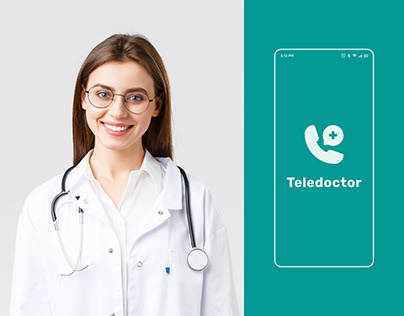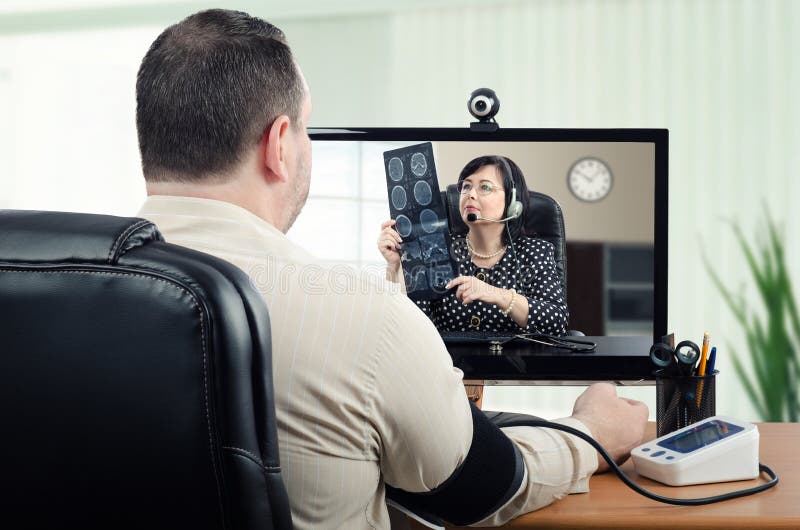Teledoctors vs Standard Healthcare: Which is Better?
Teledoctors vs Standard Healthcare: Which is Better?
Blog Article
Discovering the Perks and Difficulties of Teledoctors in Modern Health Care
As the medical care landscape advances, teledoctors have actually become an essential element in bridging voids in clinical access and effectiveness. While they provide the promise of getting to remote locations and decreasing operational prices, the journey is not without its hurdles. Personal privacy worries, the digital divide, and cybersecurity threats posture considerable challenges that have to be dealt with to harness their full possibility. Exactly how can the healthcare sector equilibrium these benefits with the inherent obstacles? This quandary invites a much deeper exploration right into the transformative function of teledoctors in shaping the future of health care delivery.
Expanding Accessibility to Care
Telemedicine has emerged as a crucial advancement in modern health care, significantly increasing access to look after diverse populations. By leveraging electronic technology, teledoctors have actually changed the traditional health care delivery model, making it feasible for patients in remote or underserved locations to get timely medical appointment. This evolution is especially useful for individuals living in country neighborhoods, where the deficiency of healthcare facilities and experts frequently causes postponed or inadequate therapy.
Teledoctors are crucial in bridging the space produced by geographical obstacles. Via digital examinations, patients can access a variety of health care solutions without the demand for extensive travel. This is especially valuable for those with mobility issues or chronic conditions requiring frequent medical attention. Additionally, telemedicine boosts connection of treatment by making it possible for normal follow-ups and surveillance, thereby improving individual end results.
The integration of teledoctors into healthcare systems additionally supports the monitoring of public wellness situations by facilitating fast action and triage. During pandemics, for instance, digital appointments lower the problem on physical healthcare centers, decreasing direct exposure threats for both individuals and health care providers. As telemedicine proceeds to develop, it promises to improve the landscape of healthcare accessibility, making it more comprehensive and effective.
Cost-Effectiveness of Teledoctors
The cost-effectiveness of teledoctors is a considerable factor driving their extensive fostering in healthcare systems. By lowering the requirement for physical framework and in-person sees, teledoctors offer an even more budget friendly option to traditional medical care delivery. This design allows doctor to reduced functional expenses, such as those associated with keeping physical workplaces and utilizing considerable on-site staff. teledoctors. Subsequently, these savings can be passed on to patients in the form of minimized consultation charges, making medical care more easily accessible to a wider populace.
Moreover, teledoctors help with a much more effective usage of medical care sources by lessening unneeded emergency situation room gos to and hospital admissions. Patients can access timely consultations for small disorders or follow-up treatment, which aids to alleviate the burden on overstretched healthcare facilities. This efficiency not just brings about cost financial savings for health care service providers but likewise lowers the economic strain on patients that could or else encounter pricey healthcare facility costs.
In addition, teledoctors can aid in taking care of chronic conditions better by giving regular monitoring and timely treatments. This proactive method can stop problems, therefore lowering long-term therapy costs. Overall, teledoctors provide a viable solution to the escalating costs of medical care, while maintaining top quality treatment shipment.
Enhancing Client Convenience
While cost-effectiveness plays a crucial role in the rise of teledoctors, boosting patient benefit stands as an additional engaging advantage of this health care design. With the integration of teledoctors, patients can bypass the generally time-consuming process of scheduling and going to in-person consultations.
Moreover, teledoctors provide flexible organizing, allowing patients to prepare assessments sometimes that finest match their expert and individual dedications. This flexibility is important for people stabilizing requiring job timetables or household responsibilities, making certain that health care can be incorporated seamlessly into their lives. In addition, the ability to access physician from the comfort of one's home can result in raised patient interaction and adherence to therapy strategies, as the obstacles to seeking treatment are lowered.
The convenience offered by teledoctors not just boosts the person experience but also adds to an extra reliable and receptive healthcare delivery system, eventually sustaining far better health outcomes.
Attending To Personal Privacy Issues
Amidst the growing fostering of teledoctors, personal privacy worries arise as a substantial factor to consider. As healthcare increasingly depends on electronic platforms, making sure the privacy of individual info ends up being vital. The digitization of clinical documents and using telecommunication technologies demand durable protection actions to shield delicate data from unapproved gain access to and breaches.
Doctor have to abide by strict policies, such as the Health And Wellness Insurance Coverage Mobility and Accountability Act (HIPAA) in the United States, which develops national standards for guarding clinical information. Conformity with such guidelines is vital in preserving patient trust fund and guaranteeing their data is taken care of responsibly. Security of data, secure interaction channels, and normal audits are a few of the measures that can be applied to enhance information protection.
Cybersecurity risks are evolving, and medical care organizations should continue to be alert to brand-new susceptabilities. Additionally, informing both patients and medical care providers about best techniques in information privacy is crucial.
As teledoctors become more web important to health care delivery, dealing with personal privacy issues is important to make sure both the efficacy and dependability of these solutions.

Navigating the Digital Separate
Bridging the electronic divide is a critical challenge in the widespread fostering of teledoctors. teledoctors. This divide includes variations in access to electronic innovation, especially amongst country, low-income, and senior populaces. These teams usually lack the essential devices, reliable net connectivity, or electronic proficiency required for efficient participation in telehealth services. As a result, the advantages of teledoctors-- such as raised accessibility and benefit-- continue to be inaccessible for many people who could most take advantage of them.
Efforts to alleviate this divide require a multi-faceted approach. Policymakers should prioritize infrastructure development to improve internet accessibility in underserved locations. In addition, initiatives to fund innovation for low-income homes can play a critical duty in making certain fair access. Medical care companies and neighborhood organizations should work together to offer digital literacy programs, equipping individuals to browse telehealth platforms with confidence. In addition, making user-friendly user interfaces can additionally improve accessibility for all demographics, particularly the senior.

Conclusion
The assimilation of teledoctors right into contemporary healthcare supplies considerable benefits, consisting of enhanced accessibility to care, cost-effectiveness, and enhanced patient convenience. Nonetheless, difficulties such as privacy problems, the electronic divide, and cybersecurity threats must be resolved to take full advantage of these benefits. By executing robust data protection actions, boosting electronic literacy, and making sure safe technical framework, the potential of teledoctors can be fully recognized, promoting fair healthcare shipment and changing the healthcare experience for all people.

Report this page